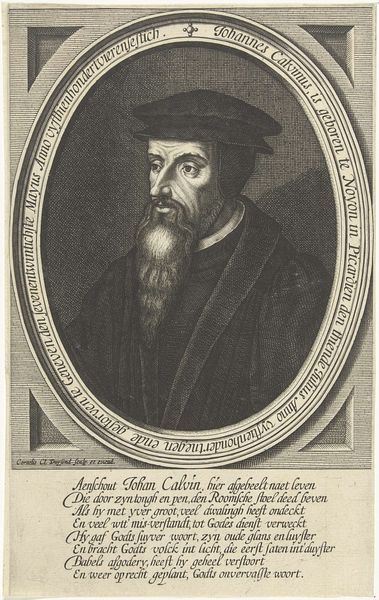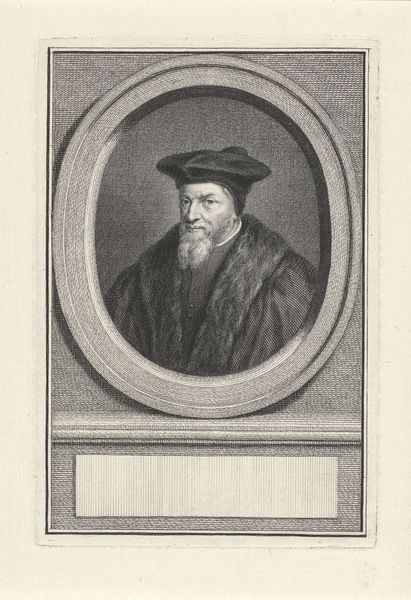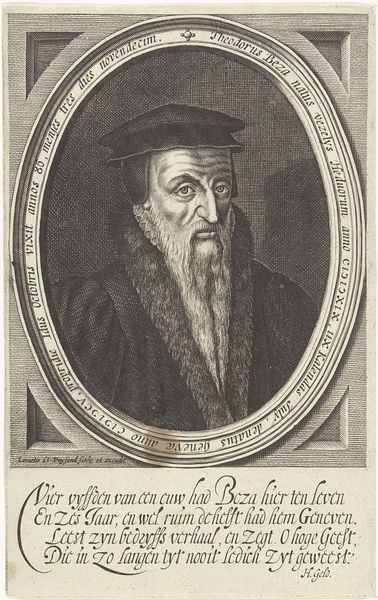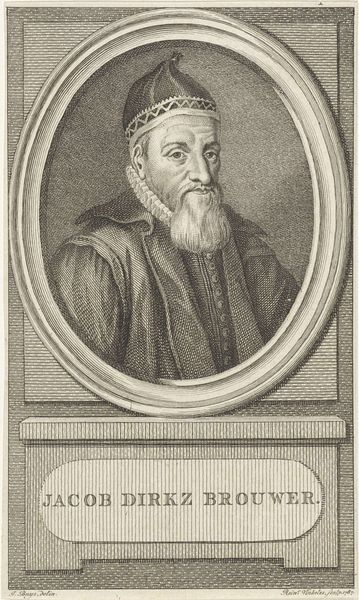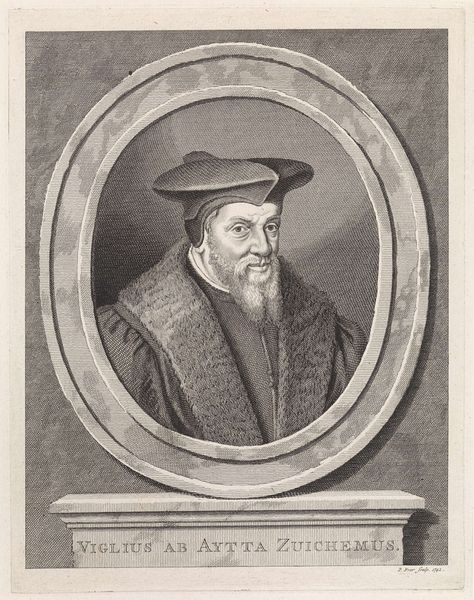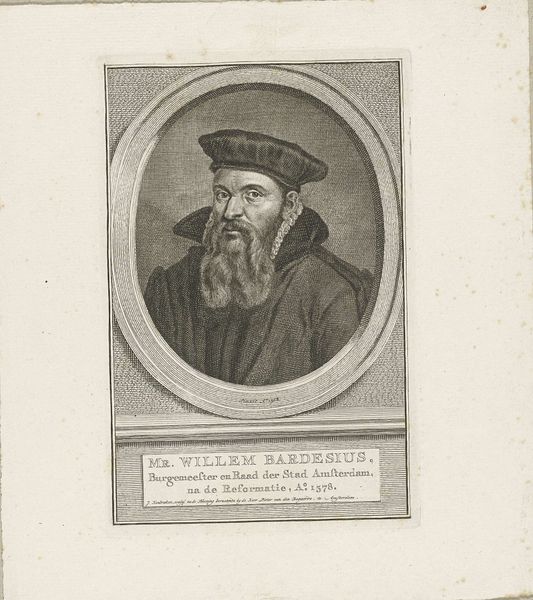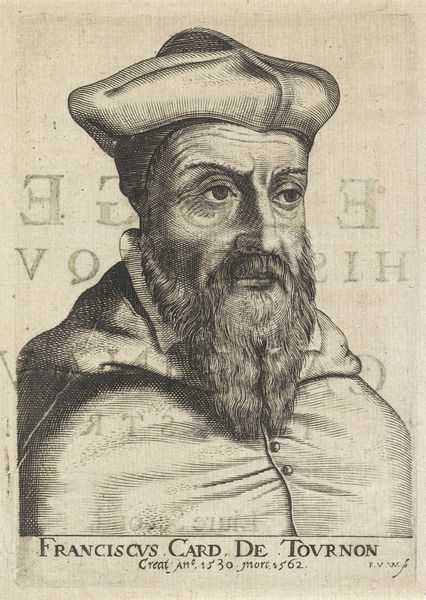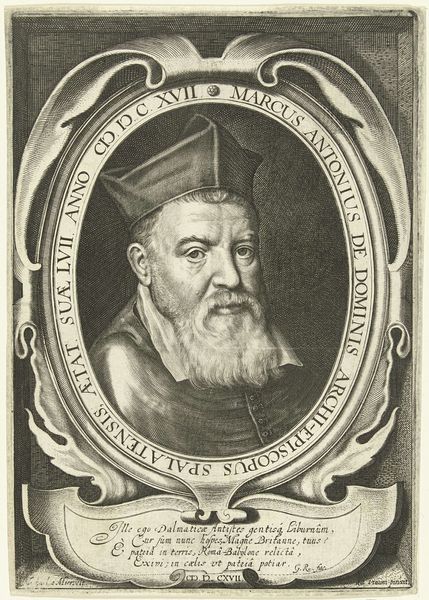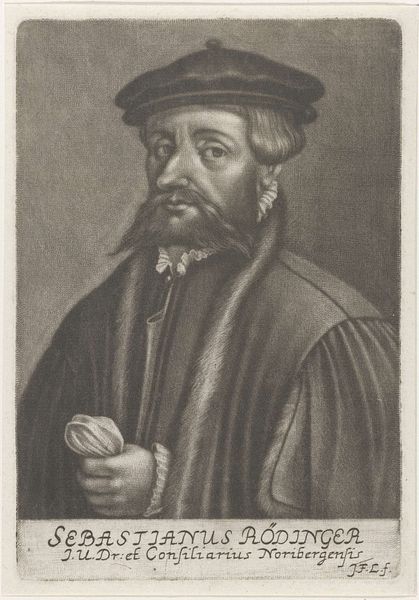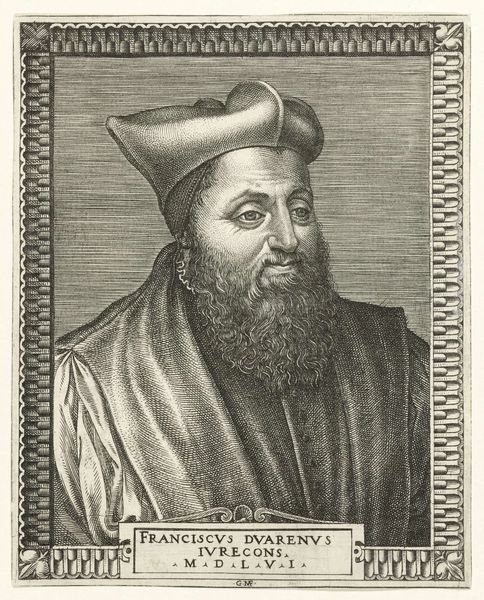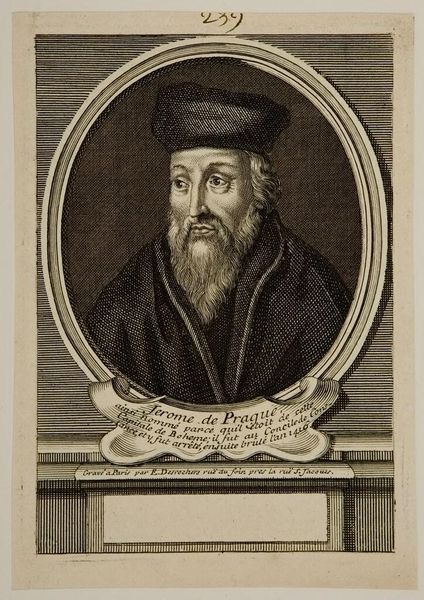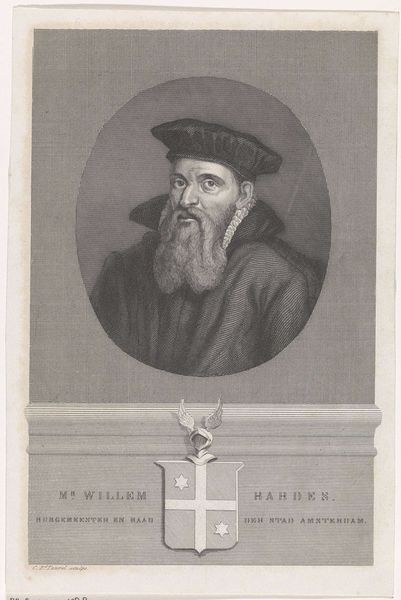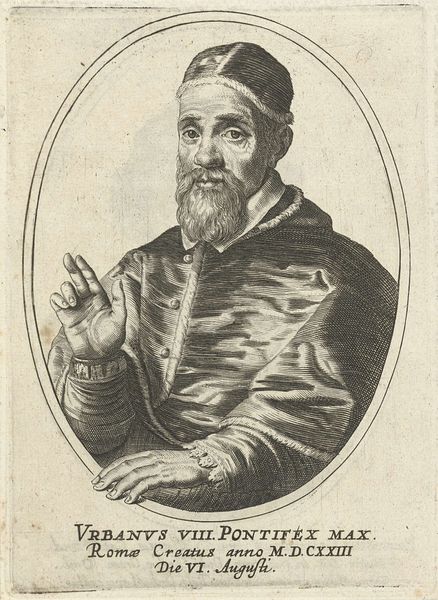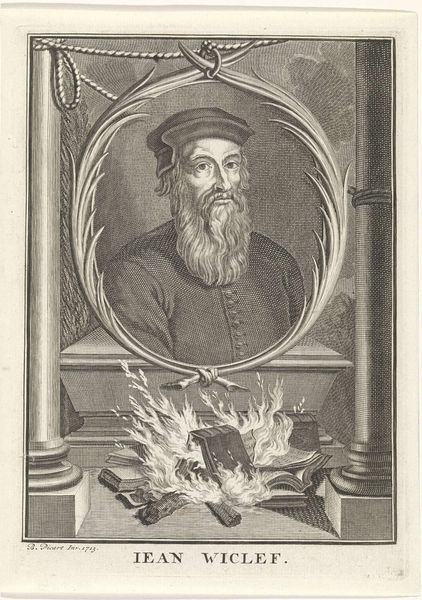
print, engraving
#
portrait
#
pencil drawn
#
baroque
# print
#
pencil sketch
#
old engraving style
#
charcoal drawing
#
portrait reference
#
pencil drawing
#
portrait drawing
#
engraving
Dimensions: height 182 mm, width 120 mm
Copyright: Rijks Museum: Open Domain
Editor: Here we have Jacob Houbraken’s "Portret van Willem Bardes," an engraving from the mid-18th century, part of the Rijksmuseum's collection. It’s such a formal depiction; his gaze is very direct and the lines are incredibly precise. What stories do you see embedded in this piece? Curator: The compelling clarity of this engraving invites us to think about representation itself in the context of the Enlightenment. How does portraiture solidify power structures? Consider the act of immortalizing Willem Bardes through print. Who was he, and who commissioned this portrait? Understanding their relationship and the broader societal role of portraiture is key. What does it mean to select certain people and elevate them to an image that is being circulated in a wider field? Editor: That makes me consider his clothing; he must have been a figure of some standing. Is there something significant about the way he's dressed? Curator: Absolutely. Dress functions as a clear marker of identity and status. Looking at the details—the cap, the robes— what do those elements communicate about Bardes’ profession, social standing, or affiliations? Beyond mere physical depiction, it served as a tool for projecting and reinforcing specific identities and narratives. How might we read this portrait alongside other images and texts from the period? Editor: So it's not just a picture of a man, but an assertion of social and political structures. It encourages us to think about who gets remembered and how. Curator: Precisely. We must recognize the active role images play in shaping and maintaining social hierarchies and narratives. It really makes you question whose stories are told and whose are erased, even to this day. Editor: I’ll definitely look at portraits differently now! Thanks so much for sharing your insight.
Comments
No comments
Be the first to comment and join the conversation on the ultimate creative platform.
